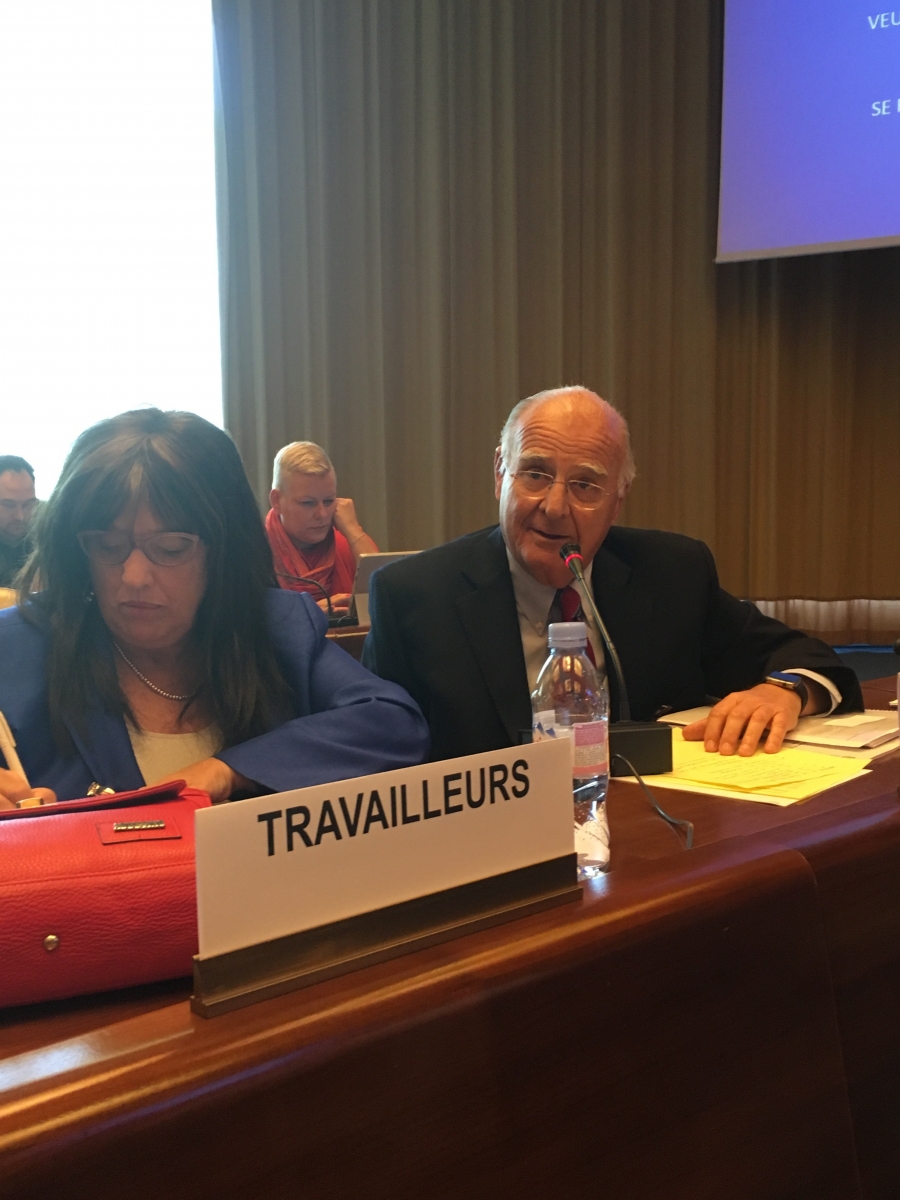News
ILO meeting: UNICARE calls for better rights for all care workers

ILO Tripartite meeting on improving working conditions in health services underway
Today the week long tripartite meeting on “Improving Employment and Working Conditions in Health Services” got underway at ILO headquarters in Geneva.
The workers’ group of this tripartite meeting is jointly managed by Baba Aye (PSI) and UNICARE Global Union Director Adrian Durtschi. The workers group consists of unions from all over the world drawn from PSI and UNICARE affiliates. In their first meeting the workers group elected Rosa Pavanelli (PSI) as their spokesperson.

The purpose of meeting is “to discuss decent work strategies that effectively address health workforce shortages, as a prerequisite to enable provision of equal access to health care for all in need, with a view to adopting conclusions on future programme development and to inform policy-making on the selected topic at the international, regional and national levels.”
UNICARE President and delegate of the Workers’ Group, Carlos West Ocampo, explains why the meeting is so important for care workers and society, “The care sector is key for the well-being of society and provides the possibility to generate decent jobs. To achieve that goal we need more investment for better working conditions and better staffing levels for the entire sector. Care can be the job-motor for decent jobs if we invest here.”
The UNICARE President also emphasised the opportunities and serious challenges faced by the ‘Long Term Care’ worker (LTC), including homecare workers, as their numbers grow rapidly despite poor working conditions. West Ocampo said, “We will make sure, that we negotiate with governments and employers for decent work for LTC workers.”
Yoo Ji-hyun, President of the Korean union KHMU and UNICARE delegate in the workers’ group denounced the growing problem of precarious work in the care sector, “We are facing several problems concerning precarious working conditions in different parts of the care sector including zero-hours contracts, expanding working hours, and unpaid travel time. We call for decent work, not precarious work.”
Yoo added, “Collective bargaining is the only way to improve the working conditions in a sustainable manner. We need more collective bargaining on a national level for the whole care sector to increase salaries, improve working conditions, and promote better staffing levels and training.”
“Freedom of Association and the right to strike are crucial elements in allowing collective bargaining and decent work to function effectively in the care sector. We need to improve the right to organise and collective bargaining for all care workers, from homecare through LTC to private hospitals,” concluded Durtschi highlighting another key point in the discussions slated for the ILO meeting in the next five days.

